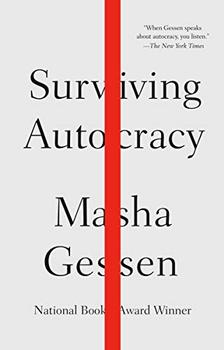Summary | Excerpt | Reviews | Beyond the Book | Readalikes | Genres & Themes | Author Bio

Critics' Opinion:
Readers' Opinion:
First Published:
Jun 2020, 272 pages
Paperback:
Jun 2021, 304 pages
 Book Reviewed by:
Book Reviewed by:
Lisa Butts
Buy This Book
The next major war was the First World War. Now speech perceived as critical of or detrimental to the American war effort was punished with prison sentences as long as ten years. Historian Geoffrey Stone has called Woodrow Wilson's Sedition Act of 1918 "the most repressive legislation in American history." Thousands of people were arrested—many without a warrant—and two hundred and forty-nine anarchist and Communist activists were deported to Soviet Russia. It wasn't until later that Supreme Court Justices Oliver Wendell Holmes Jr. and Louis Brandeis started on a dissenting streak that ultimately restored and clarified free-speech protections.
During the Great Depression, state courts, legislatures, and law enforcement acted in concert—and with the tacit agreement of the federal government—to denaturalize and deport hundreds of thousands of Mexican Americans, a majority of whom were birthright citizens.
The Second World War brought another presidential assault on the Constitution: the internment of more than a hundred thousand Americans of Japanese descent. Then came the McCarthy era, when the government took up spying on the enemy within, and accusations of treason, whether or not they were supported by evidence, ruined life after life. The next generation of Americans lived through the secrecy, deceit, and paranoia of the Vietnam War years, which culminated in a president who had his opponents prosecuted and wiretapped.
In the twenty-first century, Congress granted sweeping surveillance powers to intelligence agencies and domestic law enforcement. George W. Bush's administration lied to the world in order to start a war in Iraq and created an elaborate legal mechanism to facilitate torture. Obama's administration continued to concentrate power in the executive branch, using executive orders and pushing the limits of policy-making by federal agencies on the one hand and suppressing whistleblowing and keeping the media at arm's length on the other.
In other words, every generation of Americans has seen the government claim exceptional powers to repressive, unjust ends. These intermittent states of exception rested on the fundamental structural state of exception that asserts the power of white men over all others. Trump emerged not as an exception to this history but as its logical consequence. He was building on a four-hundred-year history of white supremacy, and he was building on a fifteen-year-long mobilization of American society against Muslims, immigrants, and the Other. A future historian of the twenty-first century might point to September 11, 2001, as the Reichstag Fire of the United States.
Excerpted from Surviving Autocracy by Masha Gessen. Copyright © 2020 by Masha Gessen. Excerpted by permission of Riverhead Books. All rights reserved. No part of this excerpt may be reproduced or reprinted without permission in writing from the publisher.





The Funeral Cryer by Wenyan Lu
Debut novelist Wenyan Lu brings us this witty yet profound story about one woman's midlife reawakening in contemporary rural China.
Your guide toexceptional books
BookBrowse seeks out and recommends the best in contemporary fiction and nonfiction—books that not only engage and entertain but also deepen our understanding of ourselves and the world around us.